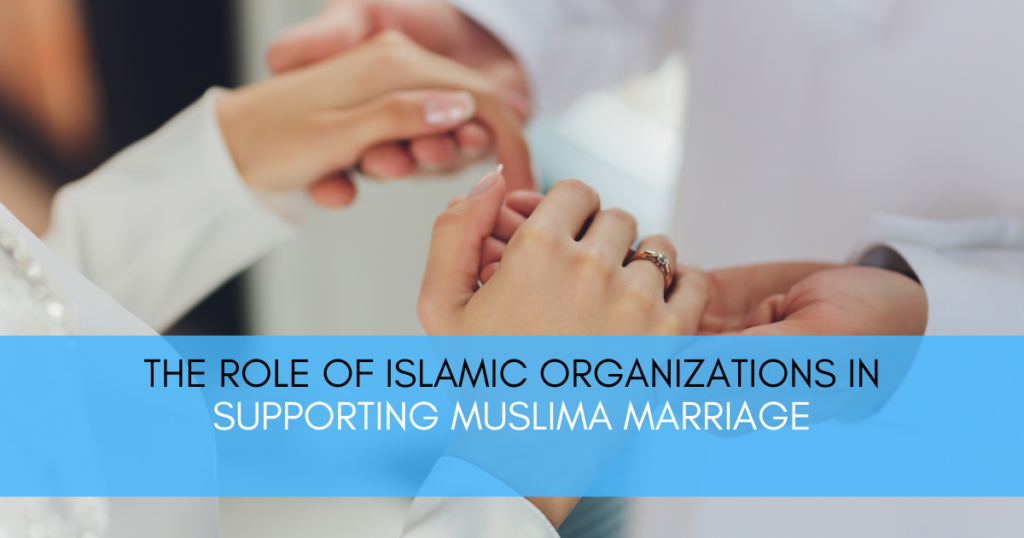Islamic organizations play a vital role in supporting Muslim marriages. As the world’s second-largest and a significant community in the United States, learning Islamic views about family can help Muslims understand and be more compassionate to one another. The role of Islamic organizations is to provide a wide range of services and resources that uphold Islamic principles and help couples build strong, stable, and fulfilling relationships.
These organizations operate within the Islamic jurisprudence following all Islamic teachings. They aim to foster marriage contracts that are not only legally sound but also spiritually enriching. Their contributions make the people socially responsible. The services can be categorized into several key areas, premarital education and counseling, marriage ceremonies, post-marital support, conflict resolution, community building, and promoting family values. This article provides a comprehensive guide on understanding marriage institute and its delicacies.
Pivotal Part of Islamic Organizations in Guiding Muslim Marriages
The foundations of the family in Islam are based on marriage and the role of Islamic organizations is fundamental in reinforcing the family system in the Muslim community. Continue reading more about the role of Islamic organizations in Muslim marriages.
Premarital Awareness and Counseling
One of the primary roles of Islamic organizations is to provide premarital education and counseling to Muslims. Different sessions and programs are designed to prepare couples for the realities of marriage. The purpose is to share the importance of mutual respect, communication, and understanding within an Islamic context. Premarital counseling often includes mutual discussions about the roles and responsibilities of spouses, conflict resolution strategies, and financial planning. By addressing these topics before marriage, Islamic organizations better assist couples in building a perfect foundation for their future relationship.
Islamic premarital courses also cover religious obligations and rights in marriage under the umbrella of the Muslim matrimonial USA organization. It ensures that both parties understand their duties according to Islamic law (Sharia). These awareness courses prevent misunderstandings and disputes from a lack of knowledge about Islamic marital principles. Many organizations go the extra mile to provide resources such as books, lectures, and seminars conducted by knowledgeable scholars and counselors. They aim to enhance the couple’s overall understanding.
Marriage Ceremonies
With the help of professional Islamic organizations, it is easy to facilitate the marriage process by organizing and officiating marriage ceremonies (nikah). These official ceremonies are conducted by qualified Islamic scholars or imams who ensure that the marriage contract (nikah) complies with the Islamic code. This includes the presence of required witnesses, the consent of both parties and the fair stipulation of a mahr (dowry).
These organizations further help with the legal documentation required for the marriage to be recognized, both religiously and legally. This is the way, Islamic organizations ensure that marriages are conducted by Islamic teachings and local laws, safeguarding the rights of both spouses.
Post-Marital Support
After the peaceful wedding process, Islamic organizations continue to support married couples through the thick and thin of life. Their various programs and services aim to strengthen their relationship. This includes marital workshops on effective communication and conflict resolution, and counseling on maintaining a healthy and loving relationship. By providing ongoing support, these organizations aid couples navigate the challenges of married life and reinforce a harmonious household.
Additionally, many Islamic organizations offer support groups where couples can share their experiences and seek advice from others who may have faced similar challenges. This sense of community can be incredibly beneficial, as it provides couples with a support network that understands their cultural and religious context.
Conflict Resolution
Conflict is an inevitable part of any relationship, and Islamic organizations play a crucial role in helping couples resolve their disputes in any matter of life. The Muslim matrimonial USA department guides in a manner consistent with Islamic principles. Many organizations offer mediation services, where trained mediators or counselors assist couples in addressing and resolving marriage conflicts. These mediators are well aware of Islamic laws and can provide guidance that is both religiously sound and practically effective.
Community Building Approach
Islamic institutions or groups contribute significantly to community building. By fostering a sense of belonging and community among Muslims, these organizations help couples feel associated with a larger support system. As far as newly married couples are concerned, this approach allows them to develop a unique bond in an Islamic relationship.
Community events, such as religious festivals, family days, and educational programs, provide opportunities for couples to interact with others. It provides them a platform to share experiences, and build friendships. This sense of community provides social support and reduces feelings of isolation among Muslim married couples.
Fostering Family Values
Islamic organizations are also fundamental in promoting family values within the Muslim community. Through knowledgeable sermons, lectures, and educational programs, these organizations teach the significance of maintaining strong family ties and raising children by Islamic laws.
By promoting these high values, Islamic organizations create an environment where marriage and family life are highly valued and supported. This cultural reinforcement can encourage couples to work through their challenges and strive for a successful married life.
Solutions to Contemporary Issues
Beyond teaching about married life and its goals, Islamic organizations are increasingly active in addressing contemporary issues that affect Muslim marriages. This predominantly includes guiding topics such as work-life balance, gender roles, and the impact of technology and social media on relationships. By addressing all these challenges, Islamic organizations help couples navigate the complexities of contemporary life.
Conclusion
The role of Islamic organizations in supporting Muslim marriages is essential and multifaceted. By offering premarital education, facilitating marriage ceremonies, providing post-marital support, resolving conflicts, building community, promoting family values, and addressing contemporary issues, these organizations help couples build stable, and spiritual marriages. This article contributes to the overall well-being of the Muslim community, ensuring that marriages are not only legally and spiritually sound but also loving and resilient.


